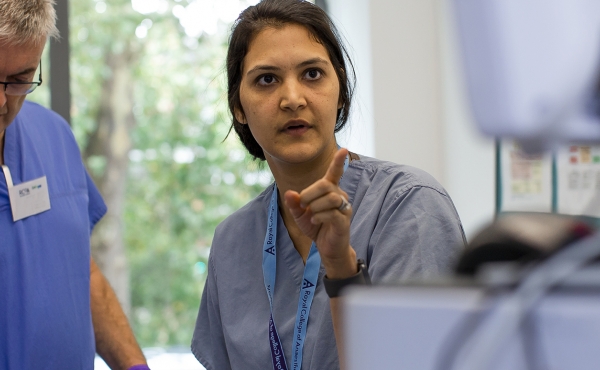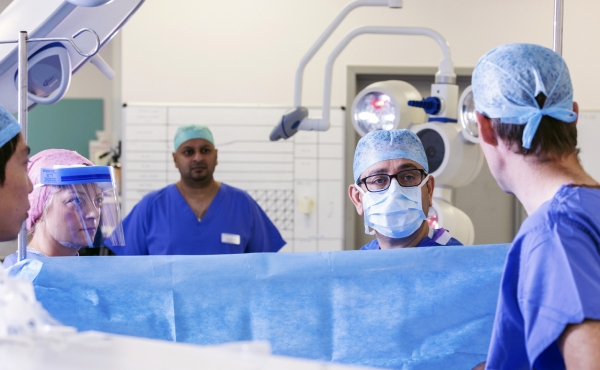Surveys
Survey service
RCoA members can submit a request for their survey relating to anaesthesia to be distributed. While we do not directly distribute external surveys, we can advertise them on this page and in our established member communications, subject to approval. If you are a RCoA member and would like us to distribute your survey, please read the guidance below and get in touch.
Members wishing to make a survey submission for distribution should complete the RCoA Survey Application Form below and return it to CRI@rcoa.ac.uk
Please read the form and survey submission guidelines below carefully.
Survey Submission Guidelines
- RCoA members can submit a request for their survey relating to anaesthesia to be distributed
- approved surveys are shared as links on this web page and as part of established RCoA communication channels for example our social media platforms and newsletters – only apply if your survey is using an online tool
- we cannot bulk email our members with a message specific to your survey or coordinate physical mail-outs of survey materials
- the scheduling of all survey distribution and the inclusion of specific surveys is at the RCoA’s discretion
- we will do our best to distribute approved surveys within your preferred timeframes but please note that:
- the RCoA also runs its own surveys of members and your project may clash with ongoing RCoA work
- there may be a number of surveys awaiting distribution and your survey timescales may not line up with RCoA capacity
- approved surveys will be shared following review by members of the CR&I Executive Management Board for relevance to the overall RCoA strategy and methodological review. Applicants with fixed data collection timeframes should plan at least four weeks’ lead-in time for any submission to accommodate this, plus any changes required by the reviewers to the survey contents.
- please return completed survey application forms to CRI@rcoa.ac.uk
- please note - should the RCoA agree to circulate a survey for the interest of its members, unless otherwise noted, neither the RCoA nor the CR&I are members of the survey teams or official sponsors of any of these research projects
Current Surveys
Barriers to evidence-based enhanced perioperative care (BEE-EPC)
Take part in this survey that invites clinical and non-clinical staff involved in enhanced perioperative care (EPC) across England to share their experiences. Led by Dr Adam Hunt (Anaesthetics ST7 and PhD student), the survey aims to understand how EPC is organised and provided across NHS hospitals in England. Your insights will directly inform research to strengthen perioperative services for patients having major surgery. The survey closes in February 2026.
What is high-risk in elective general surgery? A survey of surgical and anaesthetic practice
This survey aims to understand how clinicians identify patients as 'high-risk' in the context of elective general surgery and the role of the 'high-risk' pre-operative clinic in this process. The survey forms part of Dr Anna-Marie Tiah’s PhD research with the University of Glasgow. It closes on 13 February 2026.
Use of VR ultrasound simulation for regional anaesthesia
Take part in this survey, led by a research team at the University of Bristol, that is exploring the use of virtual reality simulation for training in regional anaesthesia. The survey closes 28 February 2026.
KEYSTONE: kidney transplant trial of dexmedetomidine
This survey invites anaesthetists involved in renal transplantation to help teams at Queen’s University Belfast and Manchester University NHS Foundation Trust to design and deliver a trial across the UK. Find out more and take part in the survey before 28 February 2026.
Research priorities for Delirium in the UK: A James Lind Alliance Priority Setting Partnership
This survey invites people across the UK to help shape future research into delirium. The James Lind Alliance Delirium Priority Setting Partnership is led by Professors Elizabeth Sampson and Emma Vardy who want to hear from patients, carers, and professionals. The survey closes at midnight on 15 March 2026.
Do you have a survey you wish to submit to the College?
Please ensure that you complete a Survey Application Form in full before making your submission. If you have any queries, please contact us for advice.



